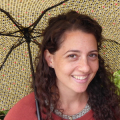You have no items in your cart. Want to get some nice things?
Go shopping
Mona had always prided herself on knowing her own mind. So when Freddie said Mum, sometimes we need to evolve our thinking, she had felt herself grow rigid with rage, had felt it pulsing at her forehead. What was there to say in return?
Had her children not noticed she was clear-sighted — a woman with principles, and that this was something to learn from?
Freddie stood, holding Sarah’s hand lightly and spoke, bizarrely, about inherited trauma. Ingrained fear sometimes makes us biased, even if we know what it’s like to be threatened.
What could her child know about trauma? It was her own parents that had fled Poland and the pogroms, she who had fought for a life of privilege here in London.
She wasn’t a bigot. She had joined protests, even, before they were born, calling for equality. It was just that there were some things that were natural, that shouldn’t be messed with.
A child needs a father, after all.
A child needs love, Mum, Freddie said now, and Sarah and I will offer that, unconditionally. Her daughter’s face was red and pinched, her composure unravelling.
Mona clasped her hands together, ran her thumbs over one another in a repeated motion. She was right there in front of her, this person whom she had cherished like the best part of herself for half a lifetime, and the space between them was cavernous.
People will look at you, love, Mona said, softening with the word. And what about the child — they’ll be bullied.
It was a given that babies absorbed cells from their mothers in utero, but mothers also absorbed cells from their babies, Mona remembered. Who passed what to whom?
I thought you had accepted Sarah. Accepted us, mum, Freddie said, quietly.
The truth was Mona had thought of them as friends, referred to them as ‘the girls’, as if they were just that — girls playing house. She was glad they had each other for company and didn’t think about it much beyond that.
There had been that one night when they were staying, years ago now, they hadn’t heard her walk into the kitchen. It had taken Mona a moment to understand, though she was relieved that she did before she opened her mouth. Sarah was sitting on the bench and Freddie stood close in front of her, one arm wrapped around Sarah’s back, the other disappearing up her skirt.
The memory still came to her occasionally, sharp and unbidden. It wasn’t, Mona realised now, that they were both women, it was the unbridled pleasure that haunted her. Sarah’s head had been tipped slightly back, her half-open eyes holding Freddie’s with an intensity Mona knew she had never seen or felt, before or since.
There were no words at all now. And so she stood silently, willing Freddie to say something else; willing some of her daughter’s courage to cross the vast space between them and sink into her skin.

About Emily Braham
Emily Braham is a writer and editor originally from Melbourne, Australia, now based in Yorkshire. She is particularly fascinated by people, human relationships and the natural world.




